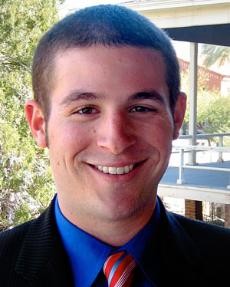With elections for student government a month away, candidates are preparing their campaigns and strategizing on how to present themselves to the student body.
At the same time, the Associated Students of the University of Arizona is figuring out how to get more students to care about voting.
ASUA hosted a mandatory candidate meeting Friday in the Student Union Memorial Center.
Amy Adamcin, elections commissioner and a business administrator for ASUA presented ASUA’s election code, but said the information would not be available online.
Leon Garcia, a biosystems engineering junior and campaign manager for senatorial candidate Sarah Rivers said he thought the presentation should be available online.
“”She (Adamcin) went through it in 20 minutes and it could have been an hour meeting,”” he said. “”It should totally be available online because it’s information we need to know, it’s important to us, that doesn’t make any sense.””
A quick search revealed that the complete elections code is posted on ASUA’s Web site.
Logistical campaigning for ASUA begins today, meaning candidates can’t make their campaign public, but can begin soliciting endorsements and work on campaign slogans or signs in preparation for next week’s official campaigning.
All candidates have a $200 campaign limit, according to the ASUA Election Code.
Last November, the ASUA Senate approved new restrictions on candidates’ campaign materials.
Off-limits for candidates are Facebook groups, MySpace pages, Web sites and T-shirts. ASUA must approve any candidate’s campaign material before it is used next week, Adamcin said.
Students can’t endorse more than one campaign and can’t have any outstanding fees or tuition in order to vote, she added.
Candidates can be endorsed by any number of clubs, but clubs can only endorse ten senatorial candidates and one executive position candidate, said Jessica Anderson, vice president for ASUA.
Tommy Bruce, president of ASUA, is running for re-election unopposed. Anderson is running against vice presidential candidate Chasen Moses, an aerospace engineering senior.
Fourteen candidates are running for ASUA Senate, while only ten will be elected. Three candidates are running for administrative vice president.
Bruce said he wasn’t sure why no one was running for his competition.
“”Hopefully I have no competition because everyone thinks I’m doing a good job,”” he said. “”But, I wanted to run again to ensure consistency in the organization; we get criticized for the high-rate of turnover so this is a great chance to effect serious change.””
Bruce said he plans to continue current projects such as the Academic Advising Review, the WebReg waitlist and the Tuition Task Force.
Anderson said she has no desire to run for president and also wants to see more consistency in ASUA.
“”I want to stay in this position because I think I have more of an opportunity to really change things and not have to go through that learning curve,”” she said.
Stephen Wallace, a physiology freshman running for ASUA Senate, said he’s looking forward to starting his campaign.
“”I’m very excited and I want to make an impact on the UA.”” Wallace said. “”I’ve felt that ASUA does have an impact in the every day life of students.””
Ninety percent of the student body opts not to vote, however. According to Wildcat archives, voter turnout was 3,967 last year (10.8 percent of potential voters), 4,060 the year before (11.1 percent), and 4,452 in 2005 (12.1 percent).
The preamble to ASUA’s constitution states, “”Students have the right and the obligation to play a significant role in guiding their university.””
The fact that the majority doesn’t is a matter of concern to ASUA, Bruce said.
To increase student voter turnout, ASUA will be changing their approach during the upcoming campaigning weeks, he said.
ASUA will work with the Integrated Learning Center and the Office of Student Computing Resources to make it easier for students to vote.
An executive ice cream social will be held on Feb. 26 so students can meet their potential leaders face-to-face, Adamcin said.
In addition, students will have the chance to ask candidates questions and interact with them during a mixer with Ben’s Bells, a local organization that promotes kindness in the community by making bells and putting them up throughout Tucson.
“”The idea is to get the students and candidates interacting, sitting on a table together, painting the bells and just getting to know one another,”” Adamcin said.
Involving students remains a challenge, Bruce said, and ASUA is trying to focus their efforts on reaching as many students as possible.
“”The entire university struggles with the ability to disseminate knowledge,”” he said. “”I mean with student surveys we send out ine-mails, it’s a low response as well.””
The United States faces the same problem with national elections, he added.
“”Voter turnout is never reflective of the entire population, but our job is to continually remind students that they have the opportunity to voice their opinion and choose who they want to lead them.””
Anderson said the responsibility should also lie with the student’s campaigning.
“”The candidates should inspire students and get them to want to vote,”” she said. “”Be creative about it.””









